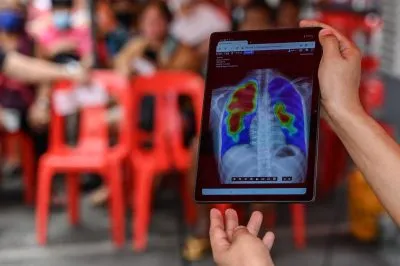Industrialisation and urbanisation in Africa are following a trajectory that is somewhat distinct from the continent’s Western and Asian counterparts.
Benefiting from globalisation and tectonic shifts in science and technology, African countries have been able to “leapfrog” some of the stages of development that other nations had to plod their way through. The transition from landlines to mobile telephony is a case in point.
In the case of information and communications technology (ICT), most African countries are centred in two areas: constructing ICT-related infrastructure and integrating its application into the broader development agenda. The intersection of these areas suggests an increasingly prominent move towards developing smart cities.
In light of this, the two principles that should be guiding investments into ICT are safety and sustainability, where three major types of ICT are likely to play an instrumental role: surveillance cameras, light emitting diodes (LEDs) and geographic information systems (GIS). Applications of surveillance cameras are wide-ranging, especially with regard to public safety, environmental monitoring and traffic control.
For example, when Chinese telecoms firm Huawei and Safaricom recently collaborated on Kenya’s “Safe City” solution to deal with terrorism in Nairobi and Mombasa, 1,800 surveillance cameras were installed. As the demand for security-related monitoring systems continues to rise in a tumultuous geopolitical landscape, technical updates of surveillance cameras could be a huge potential market for investments between China and Africa.
LEDs are essential for streetlights, an integral component of transport infrastructure. LEDs can be controlled remotely to tune lighting in accordance with vehicle/pedestrian movement and weather conditions or in response to unexpected events.
Market intelligence firm IDC predicts 180m global LED streetlight conversions worldwide by 2019 and spending of $80bn. There is an opportunity for collaboration between Chinese companies and investors and African-based partners to harness technology advances in China. Investors must grab this opportunity and put money into related products, such as semiconductor chips.
While smart cities are built on the backbone of solid infrastructure and tight security, they will be impossible to sustain if they are unable to feed themselves. Here, GIS has a crucial role to play in developing “smart food” in both rural and urban spaces, offering capabilities that extend to drought warning systems and food security supervision.
Home to 60% of the world’s arable land, Africa has the potential to become the future global food supplier. In this case, GIS will inevitably be a core technology at play. Over the next two decades, Africa has a great opportunity to disrupt traditional paths to growth and prosperity through innovative approaches to science and technology.
The success of this disruption is dependent on the continent’s continued successful relationship with China. Advances in technology made by China present an opportunity for deployment and investment partnerships with African countries in a real way.
Isaac Fokuo is founder and chairman of the Sino-Africa Centre of Excellence and a 2014 Desmond Tutu Leadership Fellow
Want to continue reading? Subscribe today.
You've read all your free articles for this month! Subscribe now to enjoy full access to our content.
Digital Monthly
£8.00 / month
Receive full unlimited access to our articles, opinions, podcasts and more.
Digital Yearly
£70.00 / year
Our best value offer - save £26 and gain access to all of our digital content for an entire year!
 Sign in with Google
Sign in with Google 


